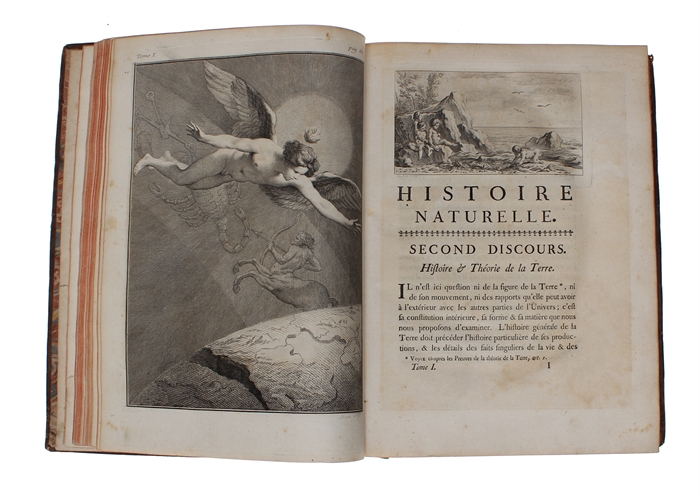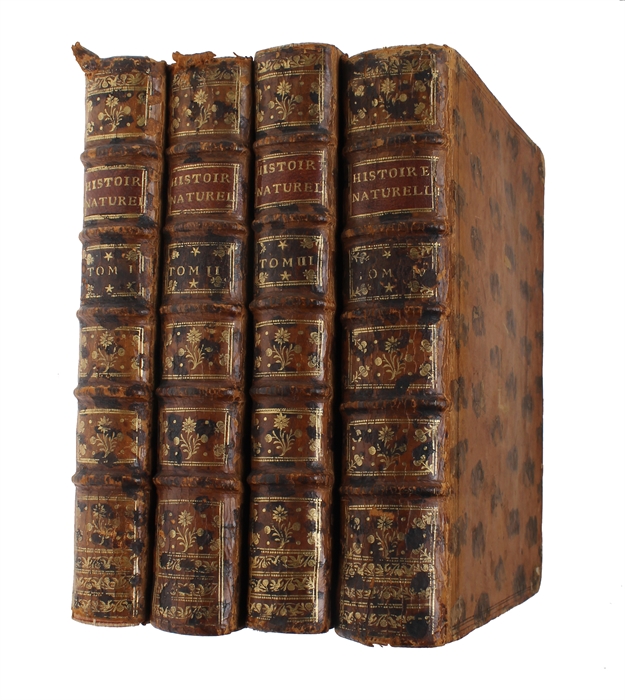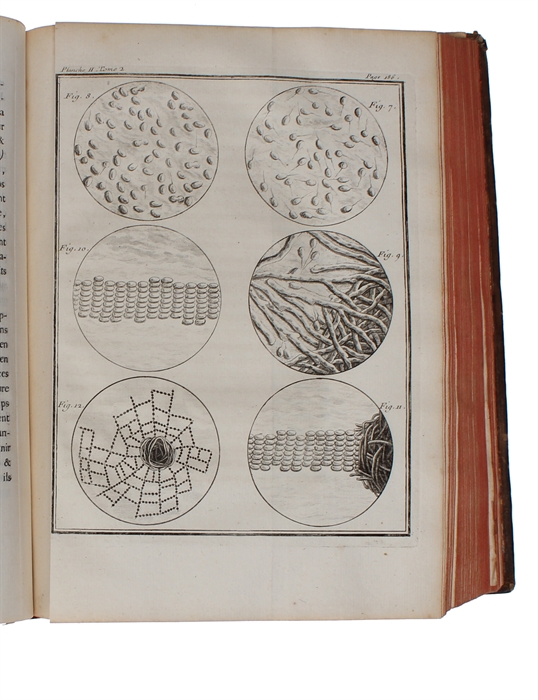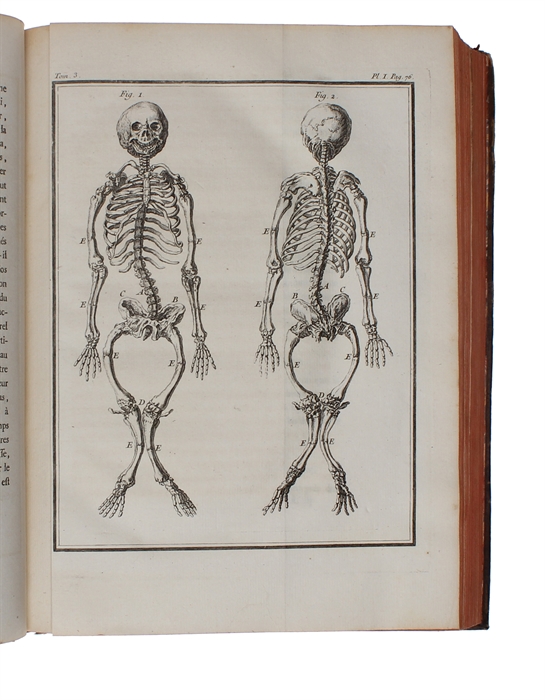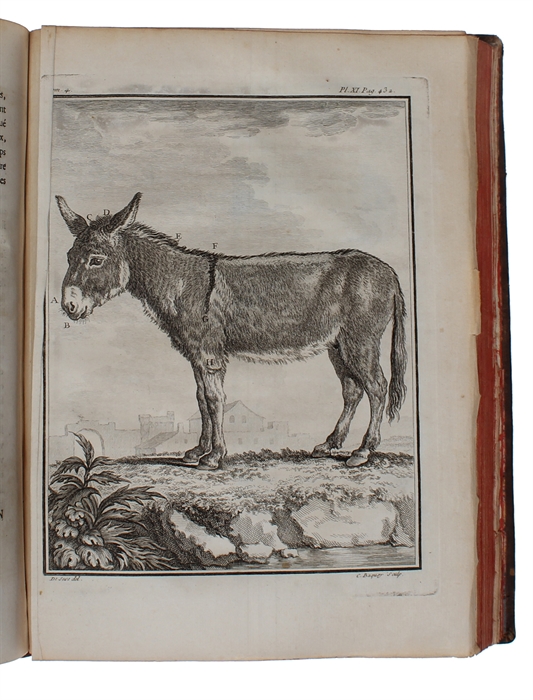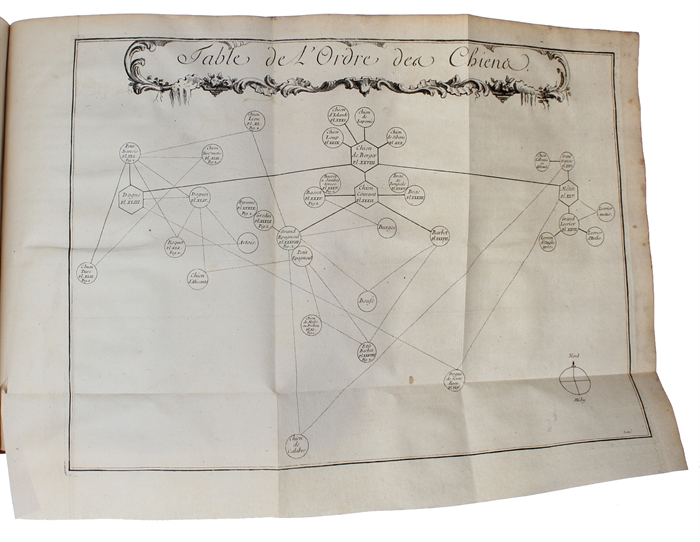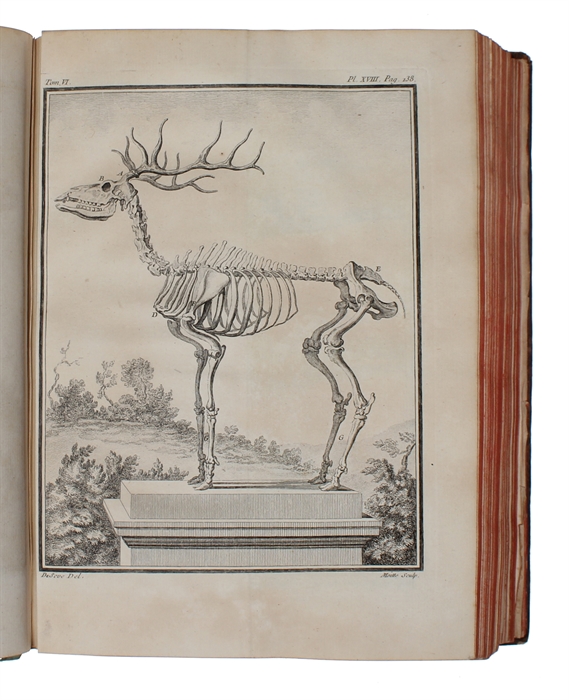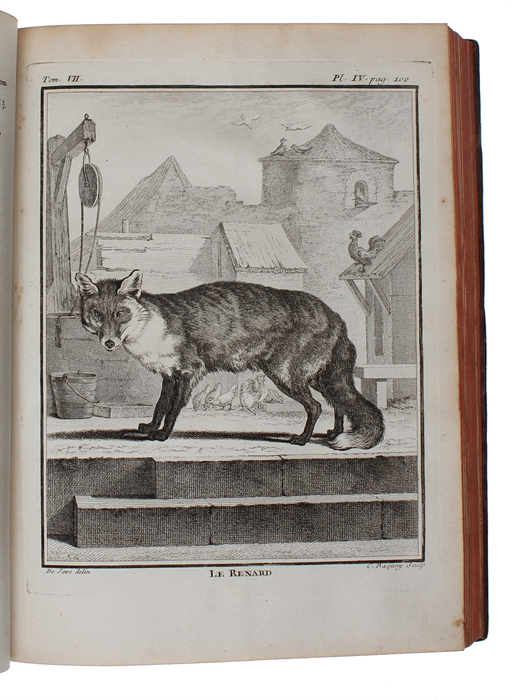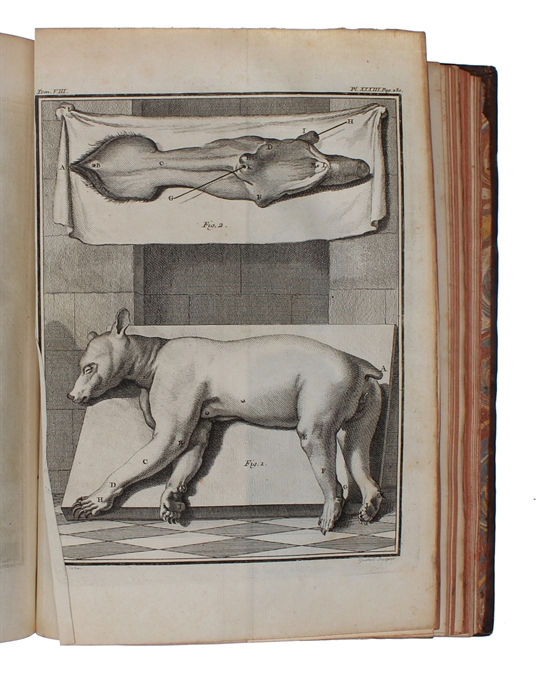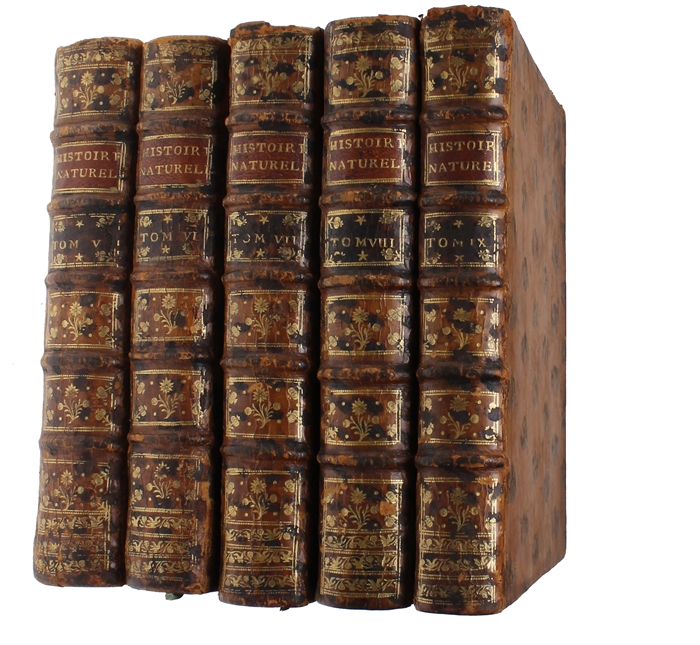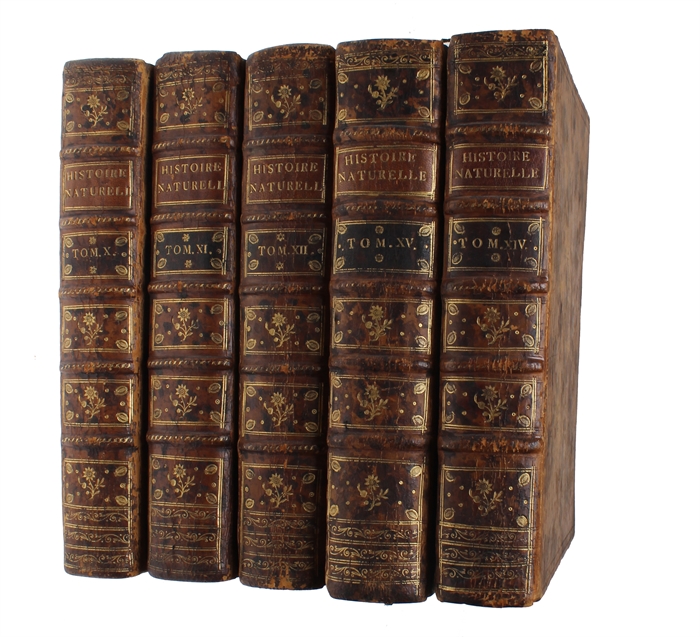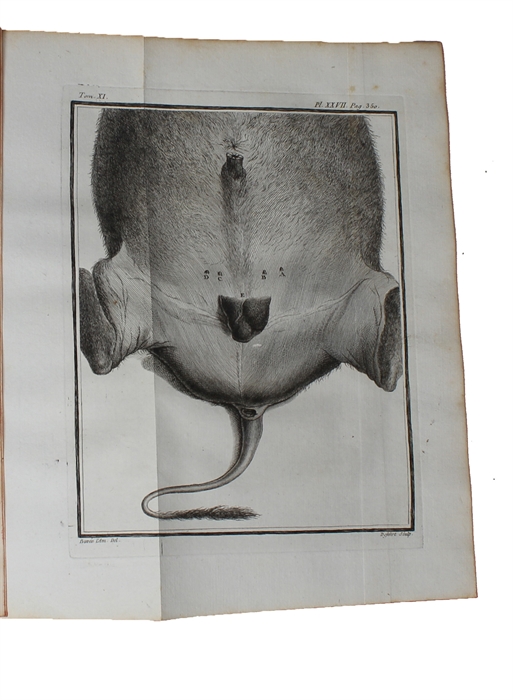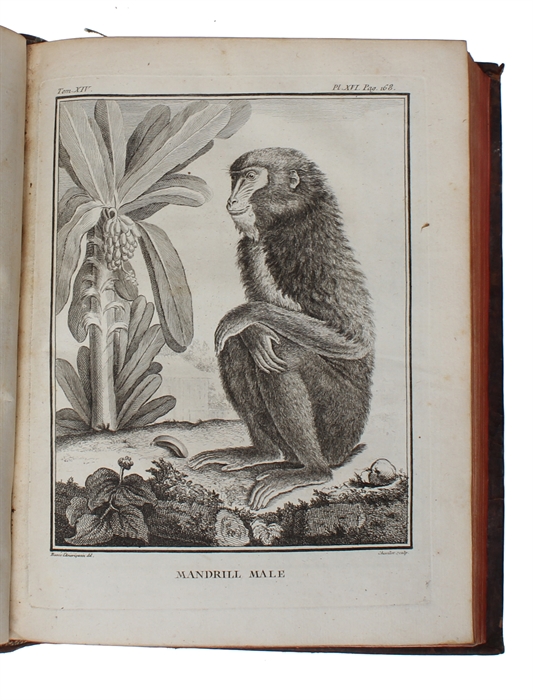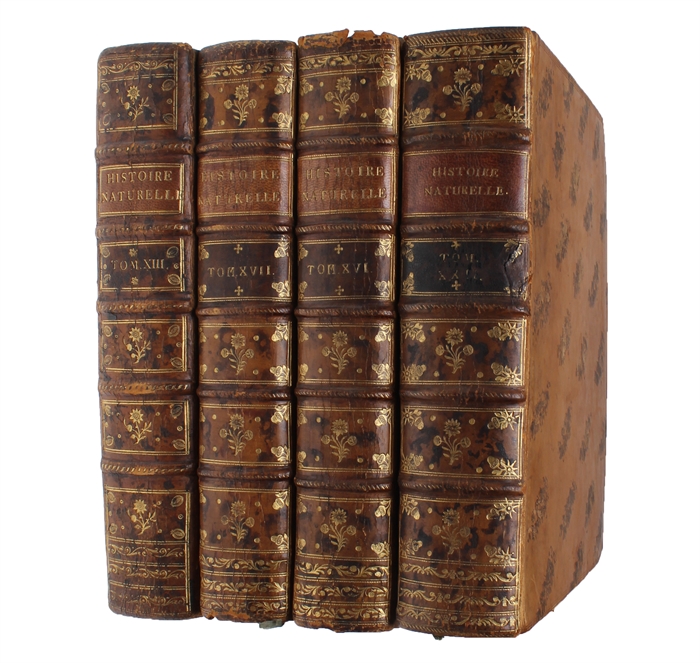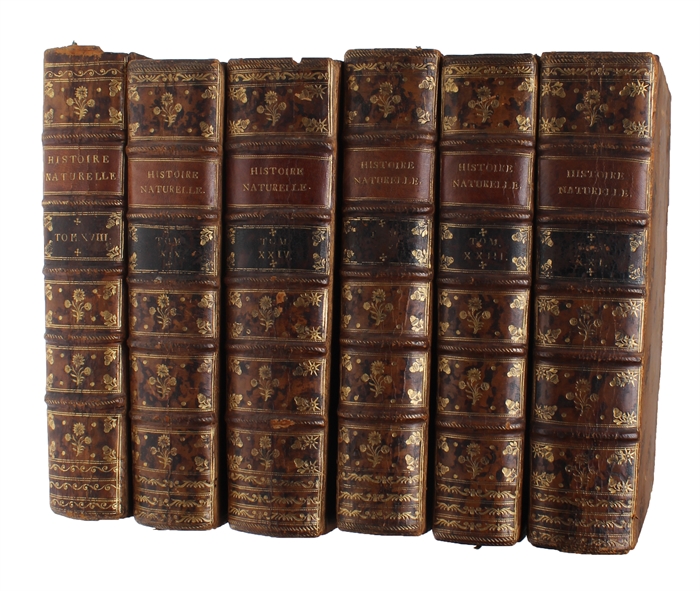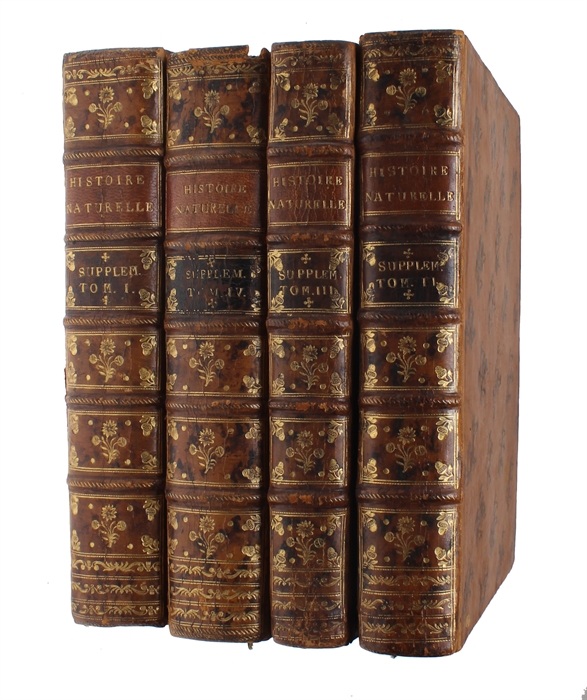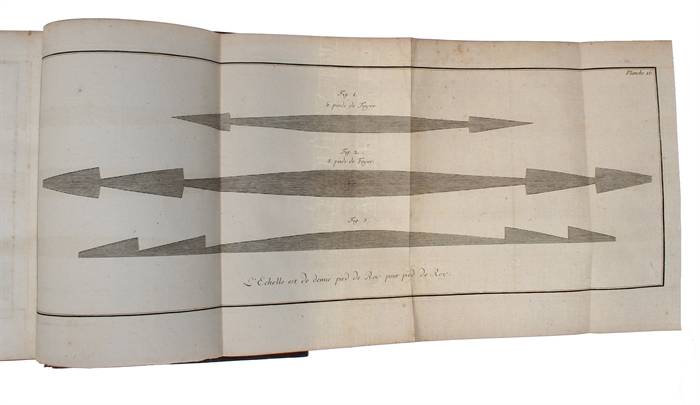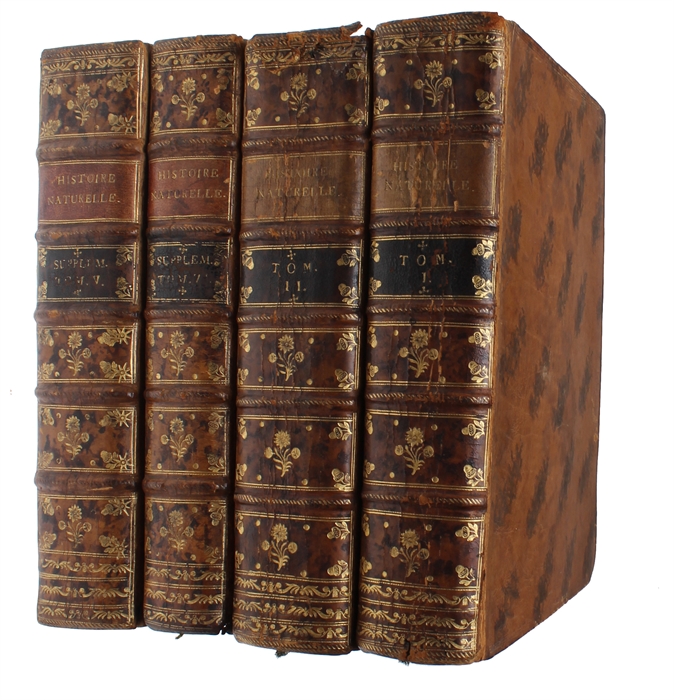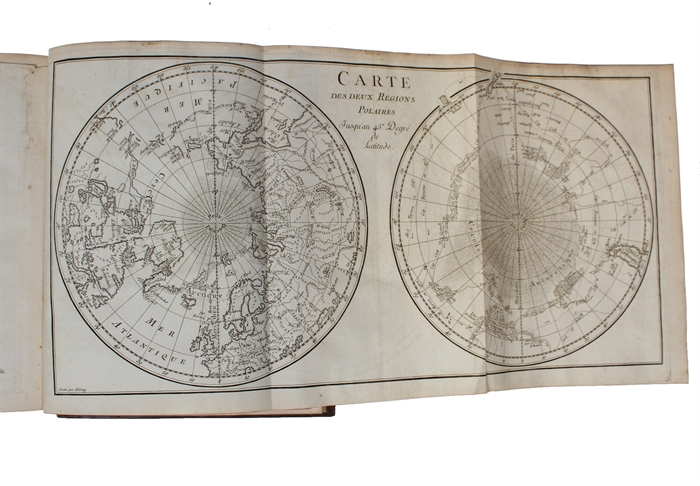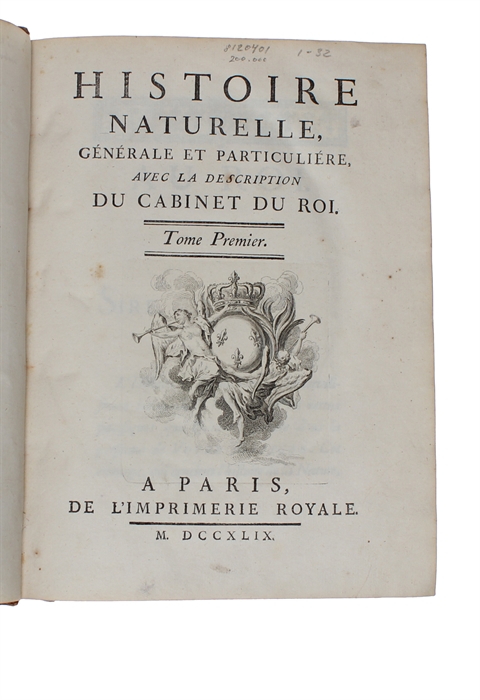FIRST "COMPLETE SURVEY OF NATURAL HISTORY IN POPULAR FORM" - PMM 198
BUFFON, (G.L.L.) & LACEPEDE, (B.G.E.).
Histoire Naturelle, Générale et Particulière, avec la description du Cabinet du Roy (15 vols.) (+) Supplément à l'Histoire naturelle (6 vols) (+) Histoire naturelle des Oiseaux (9 vols) (+) Quadrupedes Ovipares et des Serpens (2 vols). 32 vols.
Paris, l' Imprimerie Royale, Plassan, 1749 - 1789.
4to (262 x 205 mm). Uniformly bound in 32 contemporary full sprinkled calf bindings with five raised bands and richly gilt spines. Leather tome- and title-labels to all volumes. Edges of boards gilt. Light wear to extremities primarily affecting head and foot of spines, corners bumped. Internally with light occassional, marginal brownspotting, but generally fine. With "J. Collin" (Danish zoologist Jonas Collin) to top margin of most front free end-papers. An overall nice set comprising the following:
Histoire Naturelle, Générale et Particulière (15 vols) - 578 plates and 2 maps.
Supplément à l'Histoire naturelle (6 vols) - 141 plates and 2 maps.
Histoire naturelle des Oiseaux (9 vols) - 257 plates.
Quadrupedes Ovipares et des Serpens (2 vols) - 66 plates.
A total of 1042 plates and 4 maps. Wanting the portrait.
The complex collation of this work has not been accurately described by bibliographers. Nissen and Heilbrun differ in the listing of number of plates and misname the descriptions of the plates.
First edition of this extensive landmark work in natural science. After his death several other volumes were published making the total number of volumes 44. Together with Diderot's Encyclopaedia, this work represents the peak of book printing of the French enlightenment. Buffon was the first to sum up an entire natural history, based on science instead of theology; It constitutes one of the first attempts to provide a comprehensive account of the natural world aiming at describing the entire known natural world - including plants, animals, and minerals - in a single work. Buffon based his work on first-hand observations and scientific analysis, rather than on second-hand accounts or mythological beliefs, making it a seminal work in the development of modern science. "Buffon's "Natural History, General and Particular" presented for the first time a complete survey of natural history in a popular form [...] he was the first to present the universe as one complete whole and to find no phenomenon calling for any but a purely scientific explanation. In 1739, he was appointed Director of the Jardin du Roi (now Jardin des Plantes). It would appear that the 'Natural History germinated in the preparation of a catalogue of the royal collection. Buffon then enlarged its scope to Aristotelian or Plinian proportions and finally transformed it into a conspectus of nature of a breadth and depth previously unknown". […] he was the first to present the universe as one complete whole and to find no phenomenon calling for any but a purely scientific explanation." (PMM). Buffon's work had a significant impact upon the field of natural history and influenced many other scientists, including Charles Darwin; In a part of the work, ("Des Epoqeus de la Nature" (Supplement vol. V, 1778, present here)), Buffon attacked several Christian doctrines on natural science. He saw man as a part of the animal world, he objected to earth being only 6000 years old, and he dismissed a rigid classification system thus paving the way for Darwin's thoughts a century later: "Buffon's work is of exceptional importance because of its diversity, richness, originality, and influence. Buffon was among the first to create an autonomous science, free of any theological influence. He emphasized the importance of natural history and the great length of geological time. He envisioned the nature of science and understood the roles of paleontology, zoological geography, and animal psychology. He realised both the necessity of transformism and its difficulties. Although his cosmogony was inadequate and his theory of animal reproduction was weak, and although he did not understand the problem of classification, he did establish the intellectual framework within which most naturalists up to Darwin worked." (DSB) From the library of Danish zoologist Jonas Collin (1840-1905), who issued a new edition of Kjærbølling's "The Birds of Scandinavia" in 1875-1877 (See Anker 251) - a work most likely inspired by his knowledge from his (i.e. the present) copy of Buffon's "Histoire Naturelle". PMM 198.
"Georges Buffon set forth his general views on species classification in the first volume of his Histoire Naturelle. Buffon objected to the so-called "artificial" classifications of Andrea Cesalpino and Carolus Linnaeus, stating that in nature the chain of life has small gradations from one type to another and that the discontinuous categories are all artificially constructed by mankind. Buffon suggested that all organic species may have descended form a small number of primordial types; this is an evolution predominantly from more perfect to less perfect forms." (Parkinson, Breakthroughs).
The 'Histoire Générale' was widely reprinted and translated. Sometimes only individual sections were produced, other times the complete work appeared.
Nissen 672.
Brunet I, 376.
Dibner 193.
Sparrow p. 23.
Anker 6.
Order-nr.: 60389

